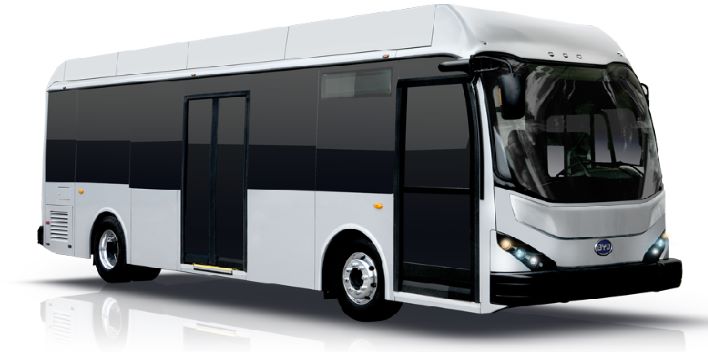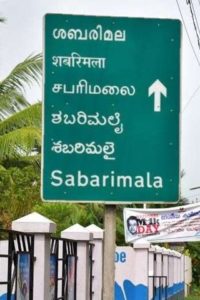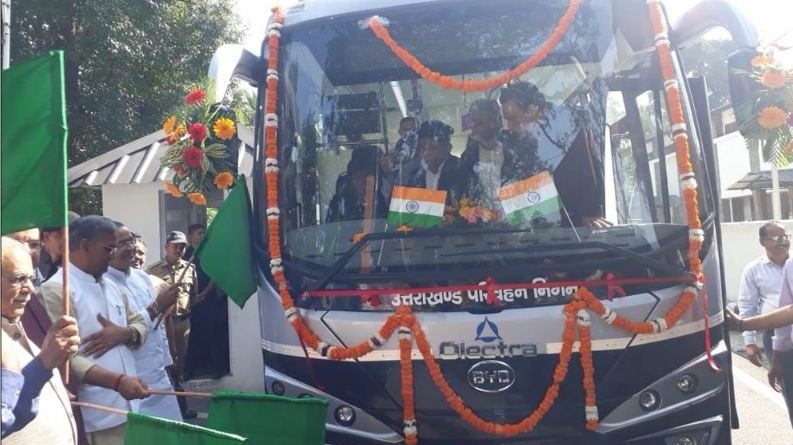

Taking action on its EV policy, KRTCL has deployed 10 noiseless electric buses from Olectra–BYD in Kerala for its Sabarimala pilgrimage. The company’s eBuzz K7 model has already been successfully plying in the high altitudes of Kullu-Manali-Rohtang pass in Himachal Pradesh, which is 13000 feet above sea level, and now will carry pilgrims in the southern state.


E-buzz K7 model is manufactured in India by Olectra Greentech with BYD Auto, which is the world’s largest electric vehicle company from China. The noiseless bus is 9 metres long, fully air conditioned and has 32 + 1 Driver seats. It is powered by Lithiom ion battery which recharges in 2-3 hours, and can travel 250 Km in a single charge. EBuzz K 7 is also equipped with regenerative braking system and offers protection from short circuit, over temperature and lightening to ensure comfortable travelling.
N Naga Satyam, Executive Director, Olectra Greentech Limited, said, “Olectra-BYD will operate electric buses in one more State in the country. Our buses would now contribute in preserving the rich ecology of Kerala—God’s own Country. Like in other states, our 10 buses will repeat the success in Kerala State as well.”
Olectra-BYD buses like eBuzz K7, K6 have been running in Himachal Pradesh,Uttarakhand, Bengaluru and Mumbai whereas eBuzz K9 has completed trials in Bangalore, Delhi, Chandigarh, Goa, Rajkot, among other cities. eBuzz K6 was the first ‘Make in India’ electric bus and have been exported to Nepal since June this year.


According to the company, Olectra-BYD buses have completed over 4,00,000 kms on Indian roads and have reduced CO2 emissions up to 419 tonnes till now which would have required 2,095 trees instead.
Kerala is among the 7 states which has a working EV policy in India. It has plans to convert 10% of its vehicle fleet into electric by 2022. The plan elaborates to bring one million EVs on the road by 2022 and create a pilot fleet of 200,000 two-wheelers, 50,000 three-wheelers, 1,000 goods carriers, 3,000 buses and 100 ferry boats by 2020. Additionally, around 6,000 buses which forms KSRTC’s fleet will also gradually shift to electric vehicles as per the policy. With this, the government aims to provide comfortable public transport, apart from reduction in air and noise pollution.
India’s ethanol initiative has helped India save Rs. 1,26,210 crore in foreign exchange by reducing…
Noida-based green energy leader NexGen Energia Ltd has secured a $1 billion equity investment commitment…
As Odisha takes firm steps toward a just transition from fossil fuels to renewable energy,…
Bio-Integrated cladding for greener cities, an innovative solution by a 29-year-old Indian architect, has won…
In a novel move, Farmwatt Innovation has launched a long-term training and capacity-building initiative focused…
State owned Bharat Petroleum Corporation Ltd (BPCL) has joined hands with GPS Renewables Pvt Ltd…